The Legend of Zelda: Tears of the Kingdom came out last Friday, and ever since, my mind has been in Hyrule. Work has suffered, my girlfriend is annoyed at me — hell, I’m even dreaming of those rolling grassy fields and snow-capped peaks every night. Frankly, I wish I was playing it right now rather than sitting here at my laptop typing away.
I play a whole bunch of games, but none has got its hooks this deeply into me since… well, Breath of the Wild back in 2017. Back then, I could settle down in the morning for a quick adventure, then glance up to find the sun is setting and my stomach is rumbling after skipping lunch. Now I’m back on that routine — with “Zelda, Zelda, Zelda!” a near-constant drumbeat in my head.
So what’s the secret sauce? How has Nintendo managed to not only capture lightning in a bottle twice but somehow improve on the much-garlanded Breath of the Wild?
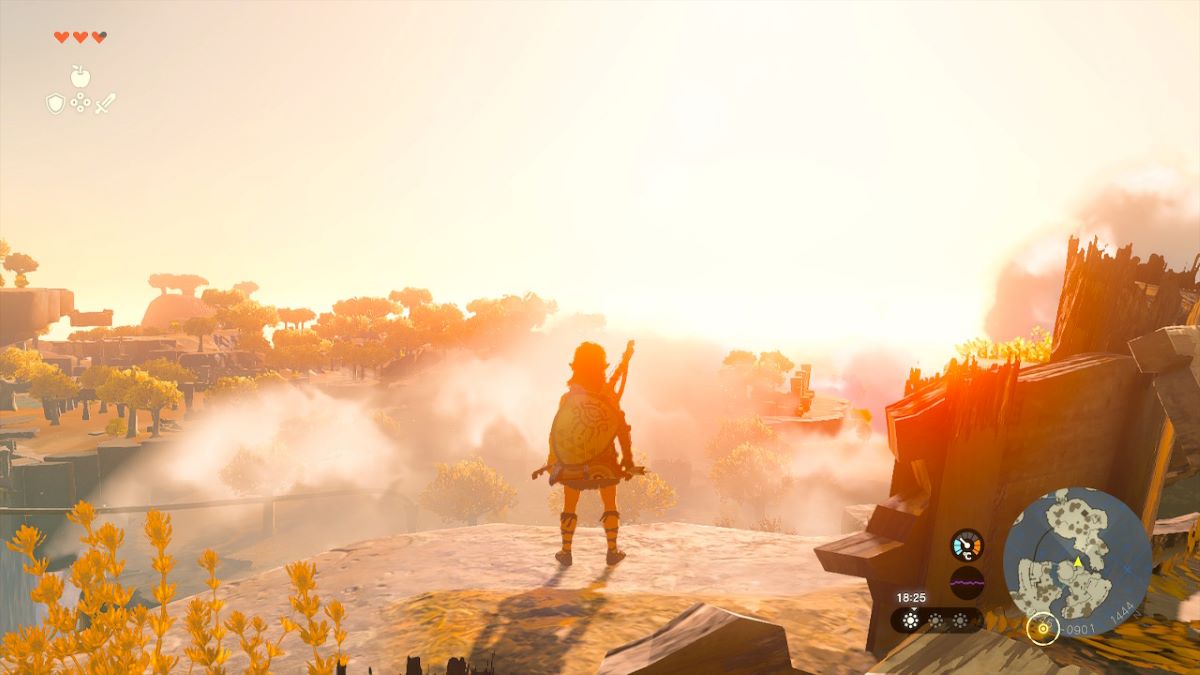
Everything that was good about its predecessor is refined here. For me, the compulsive nature of both Breath of the Wild and Tears of the Kingdom is that there’s always something just over the horizon drawing me forward. That could be the telltale green glow of a new Shrine, a Skyview tower shining light into the heavens, or even something as basic as a weird-looking rock formation that I know — I just know — is hiding something incredibly cool that I need to discover as soon as humanly possible.
Nintendo has clearly gone over every inch of this gigantic map with a fine-tooth comb, ensuring that wherever you are and whatever you’re doing, there will be something to propel you onward. It’s light-years beyond every other open-world game, leaving plodfests like Assassin’s Creed Valhalla and Horizon Forbidden West in the dust. That said, all the above applies just as much to Breath of the Wild as it does here.
What specifically pushes Tears of the Kingdom forward is its frightening desire to give the player as much gameplay freedom as they can handle. The new Ultrahand, Revert, and Fuse powers let you manipulate the world to such an extent that, if they were pitched by a designer at almost any other studio, would be dismissed as overly ambitious and utterly impractical. All this takes place within an unbelievably robust physics engine which, after countless hours of play, hasn’t produced a single bug or glitch no matter what Rube Goldberg monstrosity made of logs, rocket engines, flamethrowers, cooking pots, and unhappy Koroks I’ve cobbled together.
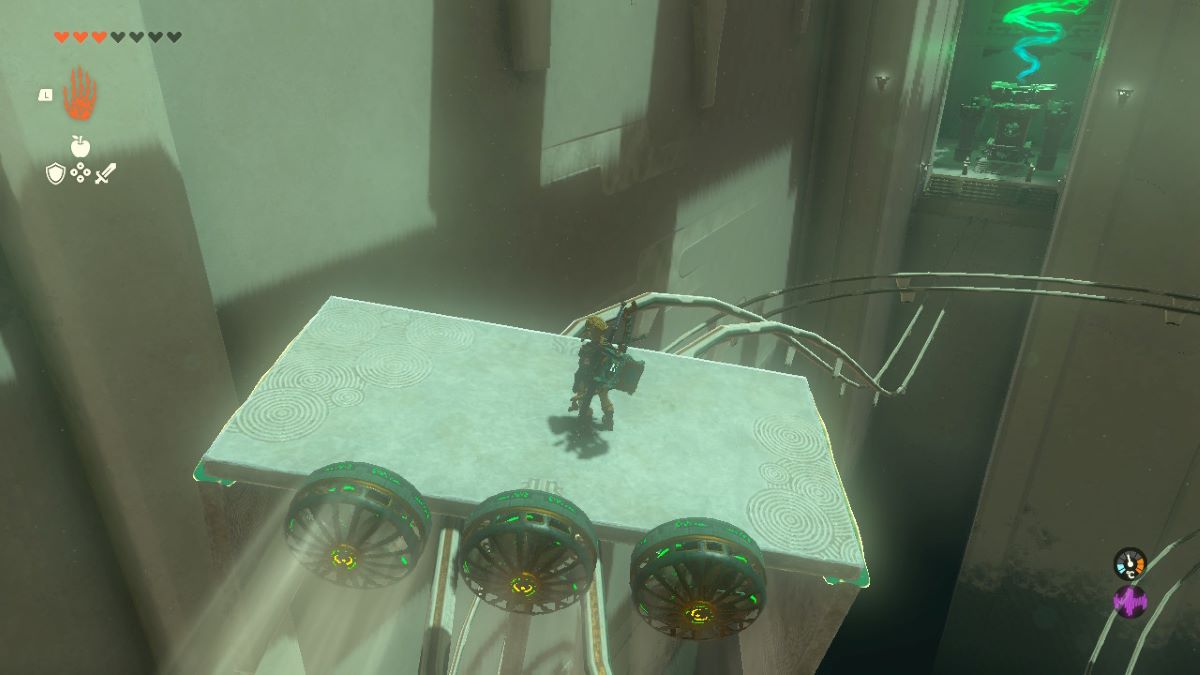
Crafting seems to be crowbarred into every major release these days, but where other games might send you on a mission for five bear asses and seven eagle claws that’ll somehow assemble into a crossbow when you combine them in a menu, Tears of the Kingdom‘s construction takes place entirely within the game world, with the only real limit your own creativity. For me, the mark of a satisfying video game puzzle is when you feel like you’ve somehow tricked the game into doing what you want, and Tears of the Kingdom provides that dopamine hit roughly every ten minutes or so. The overall design philosophy feels more akin to what you’d see in an experimental indie release as opposed to a tentpole blockbuster — like if Garry’s Mod was given a ludicrous budget and built by the most talented developers the industry has to offer.
On top of all that, Tears of the Kingdom is hands down the best-looking game on the Switch. The cel-shaded and faintly abstracted style doesn’t strive for photorealism, letting the game create the illusion of detail on some otherwise fairly low-poly models. There’s also very smart use made of environmental haze, which simultaneously cranks up the tangibility of the world while also disguising pop-in and helping obscure low-level-of-detail models in the far distance. In raw technical specs, Tears of the Kingdom is objectively a couple of generations behind modern PlayStation 5 and Xbox Series X|S releases, but it’s often far beyond them aesthetically, and for me, that’s what counts most.
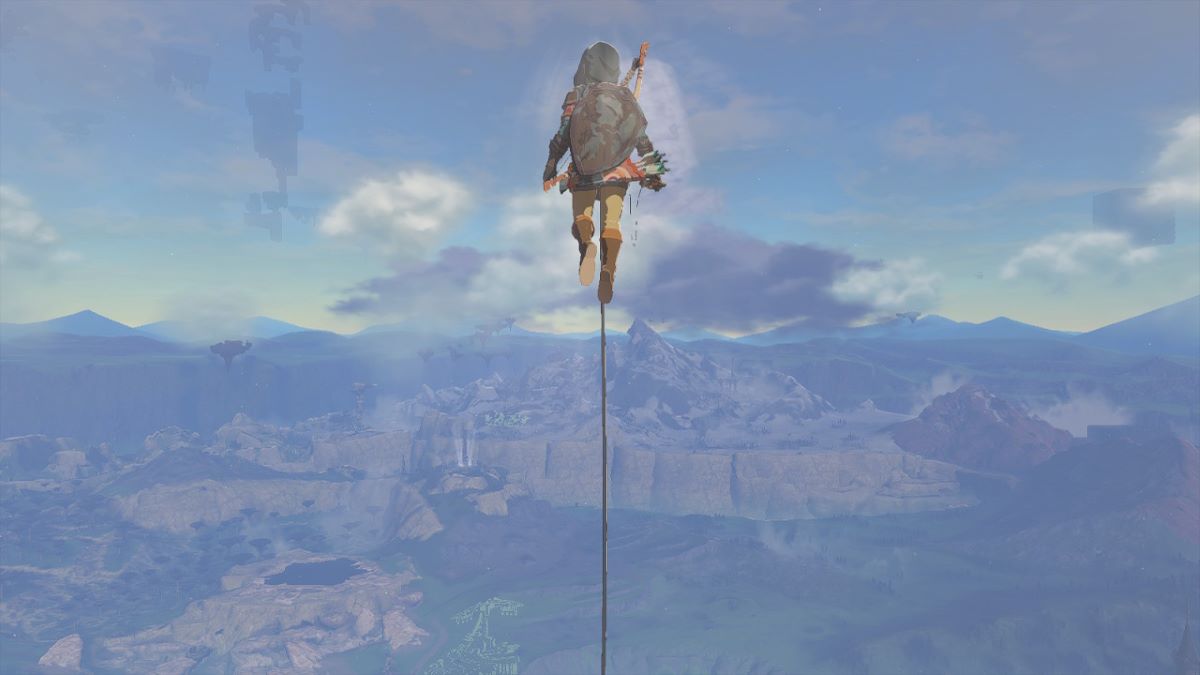
I also want to take time to praise the game’s stellar sound design. The minimalist score never gets in the way while you’re exploring, with its wistful piano pieces a perfect fit for a game about long-fallen kingdoms, a new world struggling to be born from the ashes of the past, and the (often literally in this case) crushing weight of history. Sound effects are also impeccable, and a special mention must be made of the supremely satisfying sploosh and splatter when you execute a daredevil mile-high dive into a body of water.
On top of that, this game largely sticks to its 30 FPS frame-rate target, doesn’t have particularly obvious resolution scaling, presents gigantic open vistas, lets you rocket into the sky to take in the whole map at once, and has no glaringly obvious transitions between open-world areas. And this is running on a Switch — a 2017 console whose guts are nearly obsolete mobile phone technology! And, the installed game only takes up 16GB of storage! Sure, there are some moments where the frame rate briefly dips, but what’s going on here is essentially magic. By all logic, Tears of the Kingdom shouldn’t work, but there it is, chugging away and making complex physics calculations without breaking a sweat. Hey, Pokémon Scarlet and Violet, I’m giving you a very disappointed look right now.
Bubbling away under all that is the emotional heft of the Zelda franchise’s long and glittering history. After completing Breath of the Wild, I went back to play every mainline console and handheld game in the franchise, beginning with The Legend of Zelda and working forward from there, an experience that cemented the context of everything I saw here.
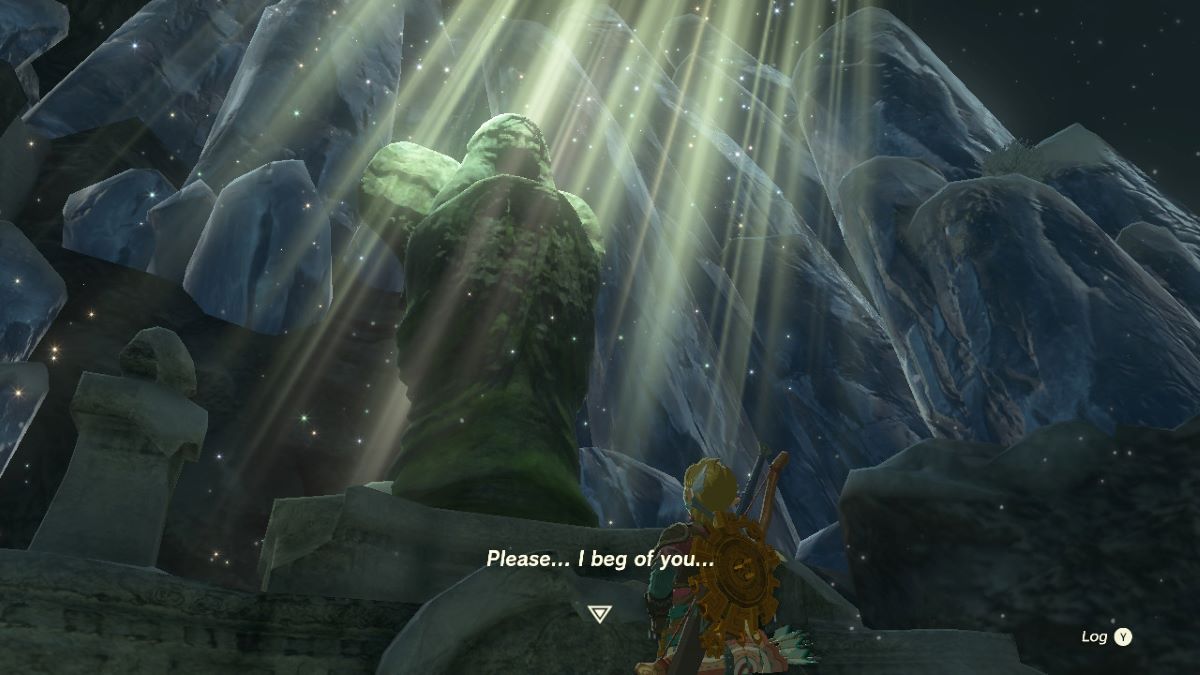
Breath of the Wild already felt like the summation of everything the series had spent decades trying to deliver, but Tears of the Kingdom brings together way more elements from across the series’ long history, from tiny moments like Link absentmindedly humming songs from Link’s Awakening and Ocarina of Time as he cooks, to the Goddess Statues from Skyward Sword making a comeback, right down to certain areas that seem to be decayed and overgrown versions of key locations from previous games.
I won’t get too deep into the story here, but it encompasses the long and very tangled magical history of Hyrule, serving as both an origin story and a long-awaited, climactic finale. It’s studded with personable, charismatic characters that feel destined to become a part of Nintendo iconography: some familiar faces from Breath of the Wild return, but there are a whole bunch of new characters that already feel like indelible parts of the Zelda story. A particular shout-out must go to Hateno Village’s avant-garde mushroom-obsessed fashionista (and would-be mayor) Cece, who’s at the center of one of the most entertaining side quests I’ve played in a hot minute.
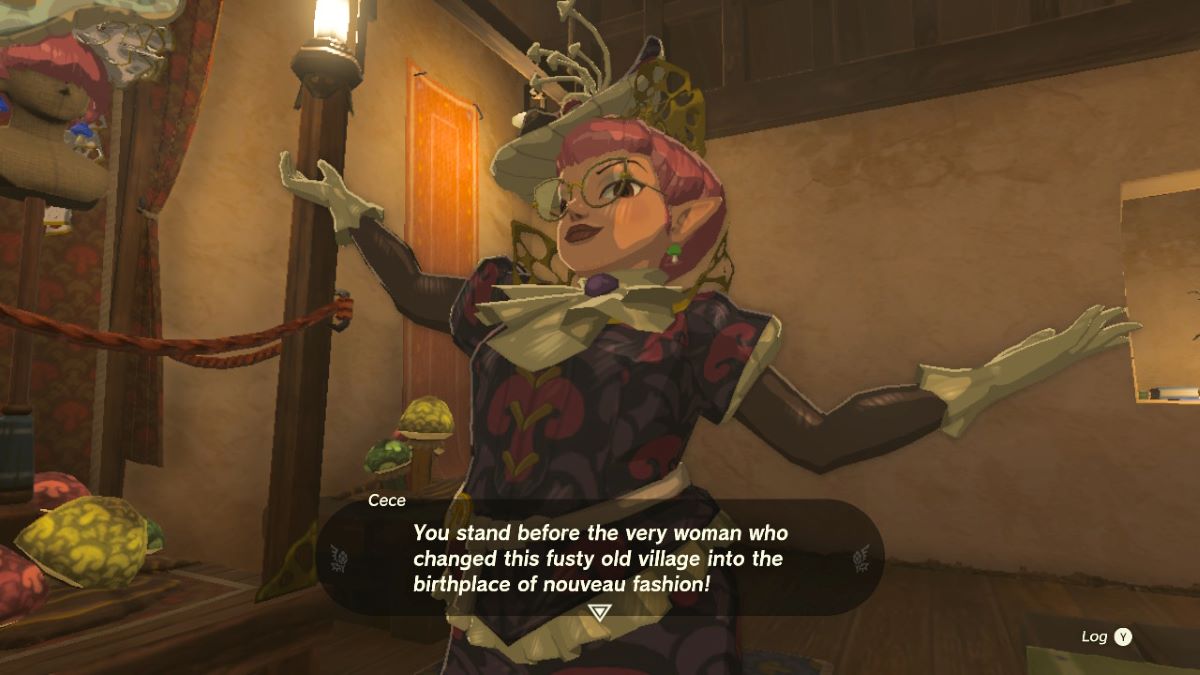
The only wrinkle is that I have absolutely no idea where Nintendo can go from here. Tears of the Kingdom works so well because it’s built atop the foundations of Breath of the Wild, and given Nintendo’s propensity for mixing things up, I doubt there’s going to be another direct sequel. But any future Zelda on new hardware would feel like a step back without these construction mechanics and the liberating gameplay that comes with it. I just don’t want another Zelda game where I can’t make a rocket ship that’s inevitably going to pancake me into the side of a mountain!
Then again, I’d half-suspected that Tears of the Kingdom would feel like a mere extension of Breath of the Wild than a new game in its own right, so who knows what ridiculously ambitious concepts are being tossed about in Kyoto right now?
So, gather around, and let’s be real. I’m speaking in a low whisper now, as I almost don’t want to admit it. But… is Tears of the Kingdom the greatest Zelda game of all time? Ocarina of Time will always be a huge part of my childhood, Majora’s Mask brings all the feels, and Wind Waker remains visually dazzling. Up until just under a week ago, I thought Breath of the Wild‘s position atop the franchise was unassailable, but Tears of the Kingdom is bigger, gives you way more freedom, and frankly, is just more fun.
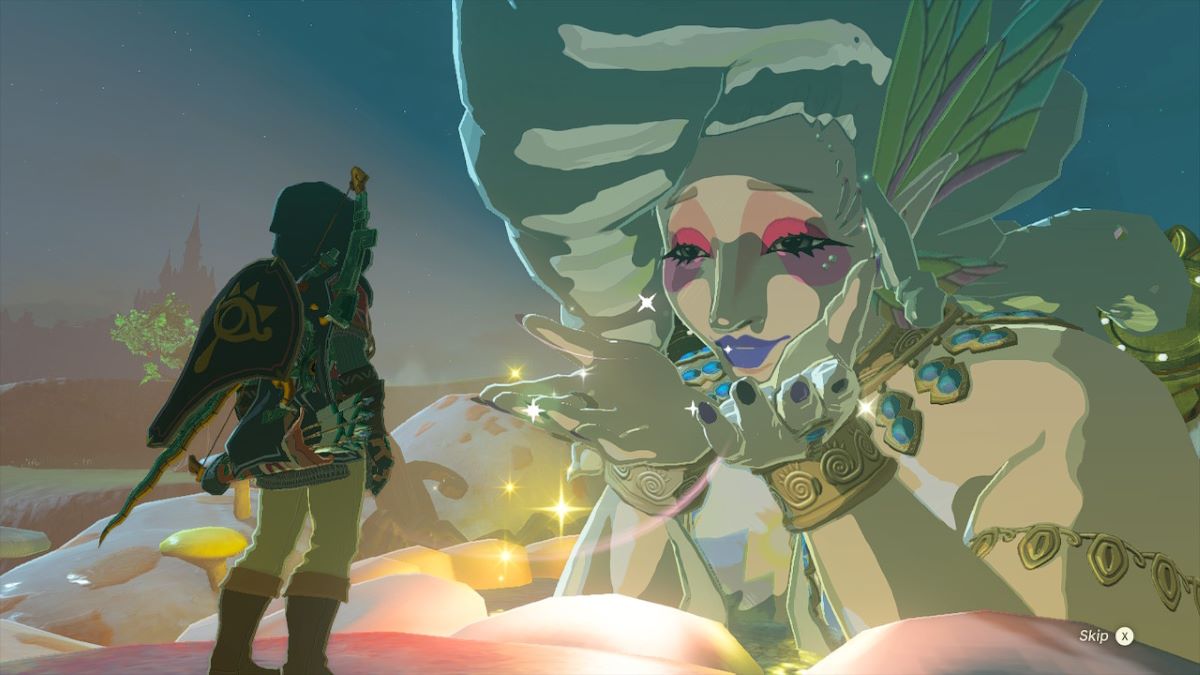
Nintendo can be a difficult company to love. They’re deeply conservative when it comes to wider video game trends, are infuriatingly strict on censoring some of their biggest fans, and regularly stuff some of their best past games into the vault so you can’t easily replay there (where the hell is the Switch port of Wind Waker HD?!), and their stubborn reluctance to upgrade their hardware has hobbled otherwise excellent games.
On the other hand, they just made Tears of the Kingdom. There just isn’t another developer in the world that could have done it, so we have to take our hats off, raise a glass, and slowly kneel in reverence. This is a monumental success in every single regard and, as the best Zelda to date, that makes Tears of the Kingdom one of the greatest games of all time.

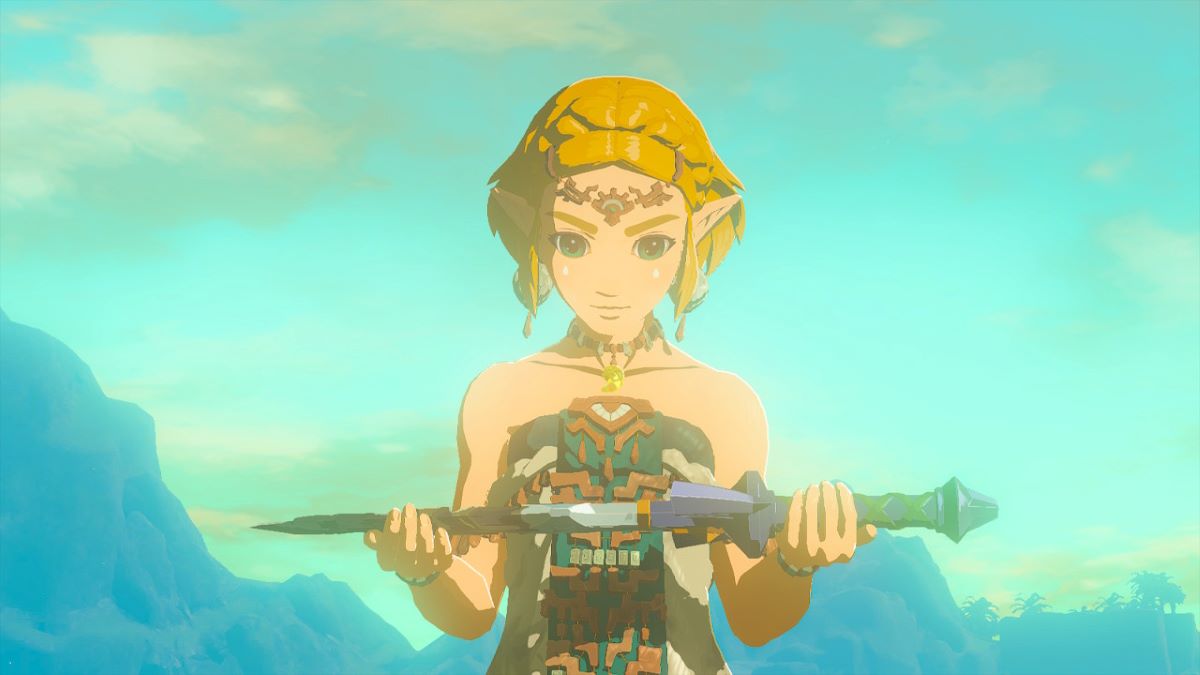









Published: May 18, 2023 08:00 am